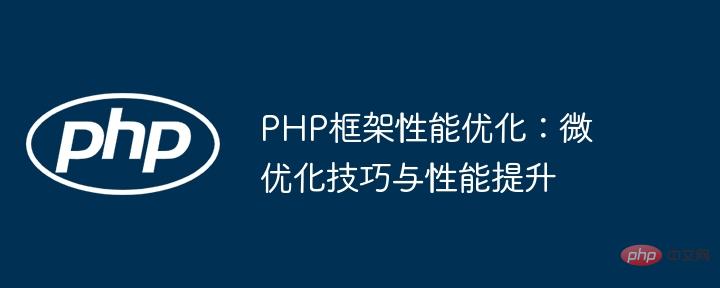
PHP framework performance optimization tips include: reducing database queries (caching data, optimizing queries) optimizing image processing (parallel processing, caching thumbnails) using opcode caching (storing compiled code) reducing HTTP requests (merging CSS/JS, Using CDN) to optimize string processing (StringBuilder mode, built-in functions, cached strings)

PHP framework performance optimization: micro-optimization techniques and performance improvements
In PHP applications, performance optimization is crucial. This article will explore micro-optimization techniques to significantly improve the performance of your PHP framework.
1. Reduce database queries
Database queries consume a lot of time. Reduce the number of queries by:
2. Optimize image processing
Image processing is another performance bottleneck. This can be optimized by:
3. Use opcode cache
Opcode cache (such as OPCache) stores compiled PHP code in memory to reduce subsequent request times Compilation time.
// 启用 OPCache opcache_enable();
4. Reduce HTTP requests
Every HTTP request involves overhead. Reduce the number of requests by:
5. Optimize string processing
String processing is very common in PHP. Can be optimized by:
Practical case: Using APC cache to accelerate Laravel
// 安装 APC 扩展 composer require apcu/apcu // 启用 APC 缓存 config([ 'cache.default' => 'apc', ]);
By applying the above technology, the performance of the PHP framework can be significantly improved. Continuously monitor performance metrics and make necessary adjustments when issues arise to ensure optimal performance.
The above is the detailed content of PHP framework performance optimization: micro-optimization techniques and performance improvement. For more information, please follow other related articles on the PHP Chinese website!